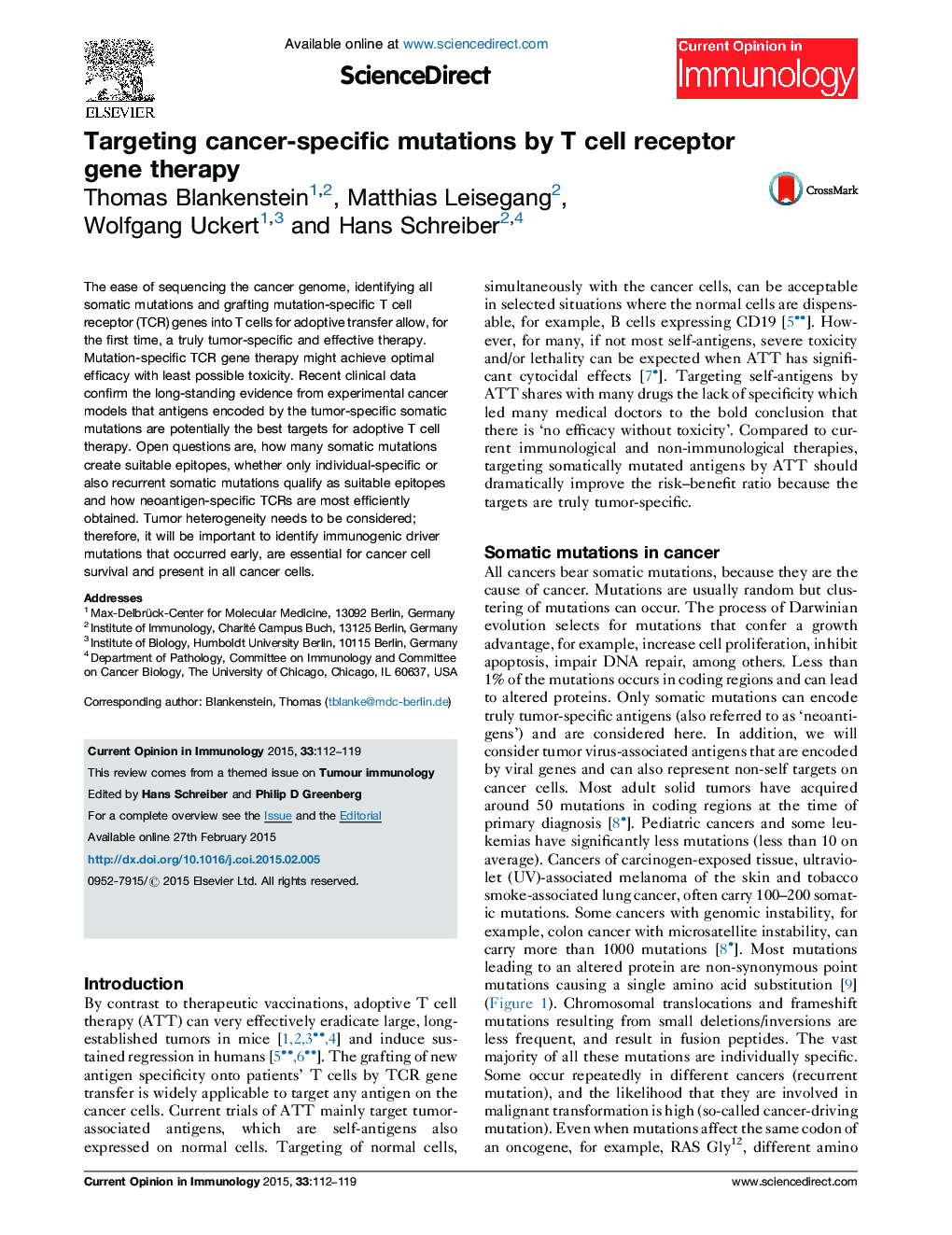| Article ID | Journal | Published Year | Pages | File Type |
|---|---|---|---|---|
| 6115008 | Current Opinion in Immunology | 2015 | 8 Pages |
Abstract
The ease of sequencing the cancer genome, identifying all somatic mutations and grafting mutation-specific T cell receptor (TCR) genes into T cells for adoptive transfer allow, for the first time, a truly tumor-specific and effective therapy. Mutation-specific TCR gene therapy might achieve optimal efficacy with least possible toxicity. Recent clinical data confirm the long-standing evidence from experimental cancer models that antigens encoded by the tumor-specific somatic mutations are potentially the best targets for adoptive T cell therapy. Open questions are, how many somatic mutations create suitable epitopes, whether only individual-specific or also recurrent somatic mutations qualify as suitable epitopes and how neoantigen-specific TCRs are most efficiently obtained. Tumor heterogeneity needs to be considered; therefore, it will be important to identify immunogenic driver mutations that occurred early, are essential for cancer cell survival and present in all cancer cells.
Related Topics
Life Sciences
Immunology and Microbiology
Immunology
Authors
Thomas Blankenstein, Matthias Leisegang, Wolfgang Uckert, Hans Schreiber,
